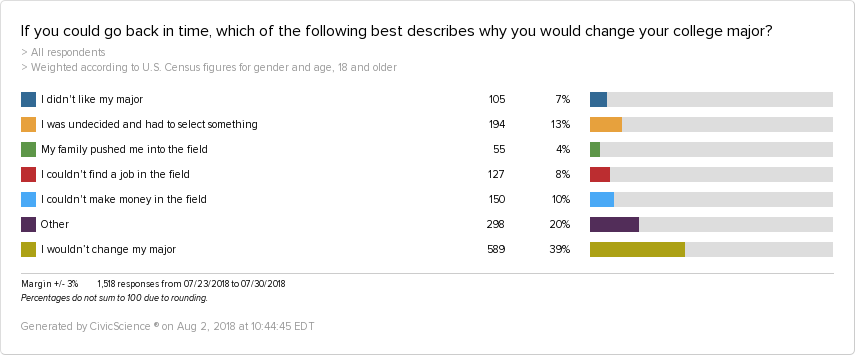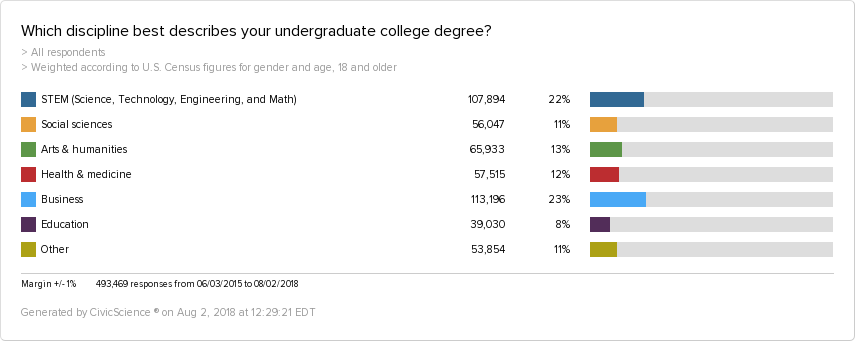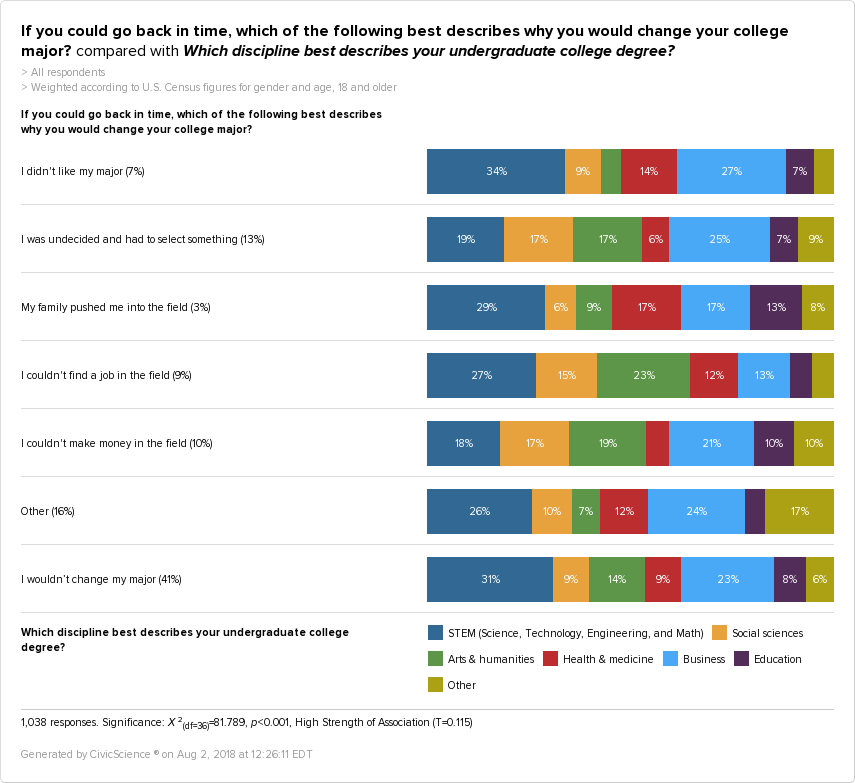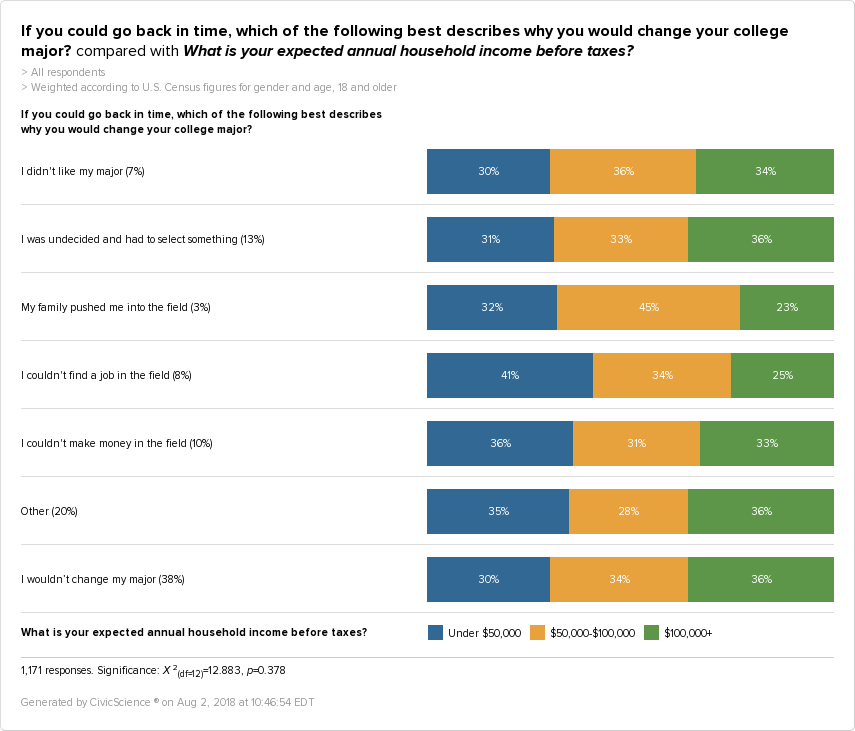Choosing a college major is a key milestone for many a higher education-bound student, marking the transition from more exploratory coursework to a specific area of study. This choice has the potential to chart the next several decades of life, making it an especially notable one. CivicScience asked 1,518 American adults about their feelings regarding their chosen major.
If given a chance to go back in time, 39% of US adults would not change their major. However, of those who had a specific reason for wishing they could change their major of choice, 13% said they had been undecided and were required to select something.
The fact that so many college grads feel they chose a major out of necessity instead of desire raises the question: Are students being forced to determine the entire trajectory of their careers too early in life?
As the data reveals, several majors may be especially polarizing.
Business and STEM are the two most popular disciplines, with 23% and 22% of US adults choosing degrees in these fields, respectively. However, these fields also see the greatest disparity in overall approval.
Of those who would not change their major, 31% were in STEM, while 23% were in Business. That said, of those who did not like their major, 34% were in STEM while 27% were in Business.
There are several reasons why these particular fields may be so divisive. Both considered highly desirable in today’s economy, they no doubt attract students seeking success. However, these particular fields are not without their unique challenges, and it seems that, with time, those whose hearts may not have been in it to start, may begin second-guessing their life choices.
Income is often directly linked to one’s chosen major. However, the data paints a fairly clean-cut picture. Essentially, in the discussion of those who wouldn’t change their majors versus those who didn’t like their majors, income is of little concern.
30% of low-income earners, 34% of middle-income earners and 36% of high-income earners say they would not change their major. The percentages of those who would change their major because they didn’t like it are almost identical.
The only real differences here are in the categories of those whose families pushed them into the field and those who couldn’t find a job with their degree. This indicates that for many, there may be more to life, or at least more to a college major, than salary.
Income aside, is there some underlying factor that makes one’s choice of major more or less tolerable? Stress is a major concern these days, and, as it turns out, could play just as big a role in how US adults feel about their career paths.
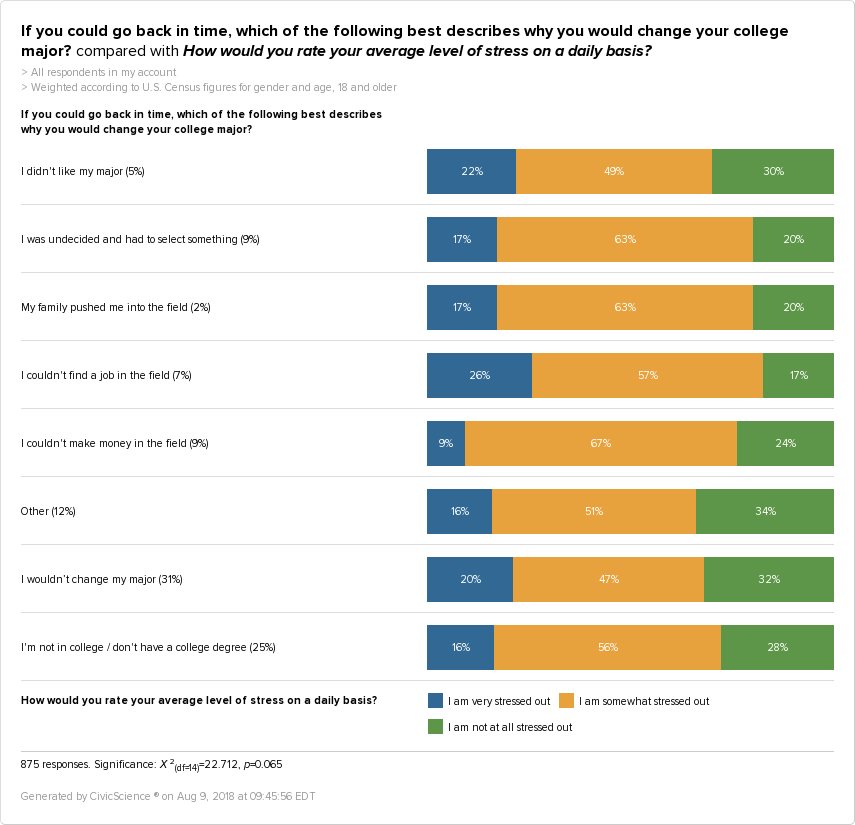 With just under a quarter of US adults who are very stressed out also reporting that they would change their major because they didn’t like it, it would suggest there is a strong link between the two.
With just under a quarter of US adults who are very stressed out also reporting that they would change their major because they didn’t like it, it would suggest there is a strong link between the two.
Stress, it seems, could be more pervasive and ultimately more harmful than we may have thought, causing later-in-life regrets about decisions made at the beginning of adulthood.
